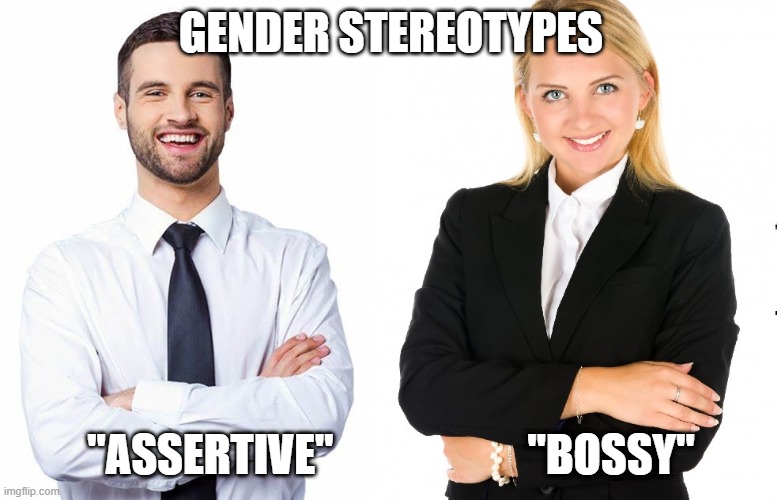
In a previous post, I tried to break down personality trait theory as it pertains to narcissism. I realized there was a lot more to say about personality! Like most other topics pertaining to human thought and behavior, this stuff is not happening in a vacuum. Humans are the most social of creatures and we can’t have a holistic view of a person without considering the culture and society they identify with. The groups we belong to shape our experience and affect how we see the world. If these ideas excite you, you may enjoy the field of multicultural psychology.
I made the case that traits aren’t “good” or “bad” in an of themselves, and I stand by that notion. Yet, it’s undeniable that some traits ring “positive” or “negative” in their connotations. And, if you google “negative personality traits” you’ll get a lot, a LOT of hits. So, what gives?
Each society and culture has expectations, whether explicit or implicit, about how “males” and “females” should think and behave. Kids are bombarded with these messages from a very young age, in things as small as what color their clothes are and what toys they play with. It would be impossible to ignore these messages. Parents, communities, schools, and the media all play a role in shaping how we see ourselves in the world; since gender expression is something other people can plainly see, it will naturally play a role in how other people react to us.
The predominant point of view may still be that gender is binary. It’s a human mind trick to look for absolutes, and there may be comfort in being able to place a person neatly into the “male” or “female” category. That may be the message that our societies have implanted in us (sometimes for generations) but the notion of “gender” is a man-made construct that might need a little updating. Having talked to Zoomers for over a decade about identity-related issues, I can say that while some young people identify as falling cleanly into the pre-described categories of “male” and “female,” many young people don’t. And, they have the tools to realize this about themselves, label themselves appropriately, and tell you how they feel about it.
This is a really good thing. Older generations can be perplexed by terminology (ex. the difference between gender and sex), the importance of pronouns, and the implicit threat to the “status quo” that they may have grown up with. The younger generations have the intrapersonal skills and self-advocacy know-how to challenge long-held stereotypes, and it’s happening so rapidly that it’s hard for some to keep up. The best thing we can do is allow young people the freedom to explore their identities as they enter a rapidly-changing and complex world that does not always serve their interests.
